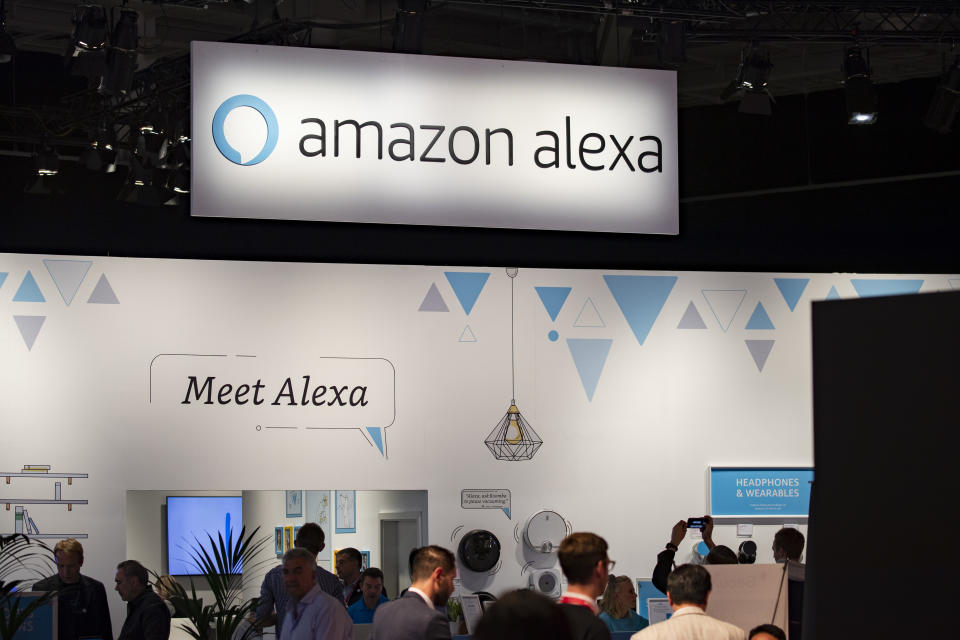This article was first featured in Yahoo Finance Tech, a weekly newsletter highlighting our original content on the industry. Get it sent directly to your inbox every Wednesday by 4 p.m. ET. Subscribe
Wednesday, Nov. 23, 2022
Tech companies are cutting back on moonshots. That could be a mistake.
Part of the mystique of Silicon Valley comes from the wild moonshot ideas its tech giants think up. From smart refrigerators to self-driving cars to intelligent speakers, major tech firms have thought up and delivered seemingly improbable products over the years.
But investing in the research and development for those kinds of ideas costs billions. And that kind of spending can become a liability as companies shed thousands of jobs and slash budgets.
In June, Bloomberg reported that Meta (META) scrapped its planned dual-camera smartwatch, while Snap (SNAP) ended its experiment with its selfie drone. In September, Alphabet (GOOG, GOOGL) ended its gambit to become a gaming company.
According to Business Insider, Amazon’s Alexa division, which has been hit hard by layoffs, is on track to cost the company $10 billion in 2022, with no clear signs it’ll ever be a profit engine.
“They are making painful choices … because of the nature of the economic and funding environment,” Andrew Wu, assistant director of business administration at Harvard Business School, told Yahoo Finance.
“These moonshot divisions represent the hopes and dreams of where these executives want the company to go. But sometimes you can’t pursue the dream, and you’ve got to focus on keeping the company afloat.”
But axing ambitious projects can set companies back for years in terms of innovation, even if there’s little chance those products will ever succeed. And if the big tech companies don’t make those investments, smaller upstart rivals might take the chance and eventually unseat today’s titans. Just as Google and Apple (AAPL) pushed Microsoft (MSFT) aside in the smartphone wars.
Tech companies need to innovate to grow
“The term moonshot has a connotation of being something that is both highly improbable and something that is potentially awe inspiring,” said Christopher E. Krohn, adjunct professor of marketing at The University of Chicago Booth School of Business.
“It’s a very large or longer term objective that also has a relatively low probability of success,” she added.
In order for tech companies like Meta, Amazon (AMZN), Google, Microsoft to continue growing, they need to make investments in experimental products. Whether that’s Meta’s $10 billion per year bet on the metaverse, Amazon’s plan to conquer the smart home with Alexa, or Google parent Alphabet’s self-driving Waymo.
The idea is that without pumping money into experimental projects and products, even those that eventually fail, companies will become stagnant or miss out on entire technology revolutions.
Microsoft and Meta missed out on the smartphone age and lost out on what could have been billions in sales. Microsoft whiffed because it was too focused on fighting the U.S. government’s antitrust suit, and Meta was simply too late to the game. Now both companies have to rely on Apple and Google’s operating systems to play in the smartphone space.
To avert similar disasters, the two companies are investing heavily in headsets and the metaverse with the hopes that their own platforms become the next ubiquitous devices we can’t live without.
But those plans often take years to pan out, if at all. And at a time when companies are cutting back on costs, those big bets that could hold the keys to businesses’ futures are in accountants’ crosshairs.
Innovation is pricey, especially when it fails
While Amazon’s Alexa isn’t a traditional moonshot, it’s been on the market in a variety of forms for years, it’s struggled to make the company cash. Consumers were originally supposed to use their Alexa-powered devices to make hands-free purchases via Amazon Prime.
But that hasn’t exactly worked out, and most people use their Alexa-enabled gadgets to do things like play music or set timers. And while Amazon says it’s still interested in investing in its own hardware and intelligent assistant, its Alexa division has been hit hard by the company’s recent job cuts.
Snap’s $230 Pixy drone, meanwhile, was on the market for just four months before the company sent the pint-sized device to an early grave. In addition to its smartwatch, code-named Milan, Meta has also killed off its Portal line of video chat devices, as well as two other smartwatches, according to The Verge.
As for Google, after trying to launch its own game studio and Stadia cloud gaming service, it’s ended both ventures.
“Right now, for companies to pursue stuff that is really out there, that doesn’t have a logical pathway to solving somebody’s problem…it’s probably a good thing to get rid of that product,” explained Forrester VP and principal analyst J.P. Gownder.
Still, companies have no choice but to plow money into potential hits. If they don’t they could end up falling to the wayside as smaller firms overtake them.
“If you’re also not investing in bigger, more breakthrough, next-generation projects, you might get completely knocked off the mat by somebody else who is,” explained Melissa Schilling, professor of management at New York University’s Stern School of Business.
If today’s tech giants are going to continue to hold onto their positions as the most innovative companies in the world, they’ll need to make the right investments and take risks that might sound wild today. If they don’t, they could end up the hasbeens of tomorrow.
By Daniel Howley, tech editor at Yahoo Finance. Follow him @DanielHowley
Read the latest financial and business news from Yahoo Finance
Follow Yahoo Finance on Twitter, Instagram, YouTube, Facebook, Flipboard, and LinkedIn







